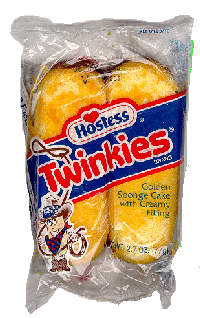How to prevent food addiction relapse
Maintaining the new you
 Have you considered quitting certain problem foods, but wonder if the trouble will be worth it, if you doubt your ability to maintain new eating habits? Or perhaps, you have broken your addiction to certain foods, only to find that you've slipped up and now eat them again?
Have you considered quitting certain problem foods, but wonder if the trouble will be worth it, if you doubt your ability to maintain new eating habits? Or perhaps, you have broken your addiction to certain foods, only to find that you've slipped up and now eat them again?
Part of losing weight requires making changes for the long term, not just a few days or even a few months. Maintaing good habits for years if not the rest of your life and not getting readdicted to problem foods will help you keep the healthy weight you worked so hard to obtain. You don't have to change all at once. Nor is there only one way to be healthy. New information from research may also guide how we live in future years.
 Quick Review - Food Addiction Withdrawal
Quick Review - Food Addiction Withdrawal
The withdrawal period from an addictive food will vary from person to person, but typically lasts a week or two. More information about food addiction withdrawal and how to get through it, can be found in Tip 88.
After the food withdrawal period
There are a few possible pit-falls you may encounter once getting through the food withdrawal period. Below are two common problems for kids who have lost weight. Becoming aware of these problems and learning how other kids successfully overcome them should help you triumph over these challenges too!
#1 • Withdrawal Cycling
Kids may get trapped in a bad cycle by moving back and forth between experiencing food withdrawal while trying to lose weight, then giving up within days or weeks and going back to overeating. Soon thereafter, they try to lose weight and go through the associated withdrawal feelings again. Because they never get completely through withdrawal while stuck in this cycle, they have bad cravings and antsy feelings more or less continually, which is agonizing.
 From Amanda, Age 19 - 10/08/08 - Ht. 5'8", Start: 225 lb, Current: 173 lb, Goal: 150 lb - okay so i pretty much let myself go for like, 2 weeks. big mistake, i went from like 167 to 173. so i gained like 6 pounds... my main concern right now is to get back to where i was a couple weeks ago (between 166-168). i know i can do it. i just really have to stick to my guns this time... i think i can do it. anyways good luck everyone. resist temptation beause once u give in once, ur bound to keep on going (like i did).
From Amanda, Age 19 - 10/08/08 - Ht. 5'8", Start: 225 lb, Current: 173 lb, Goal: 150 lb - okay so i pretty much let myself go for like, 2 weeks. big mistake, i went from like 167 to 173. so i gained like 6 pounds... my main concern right now is to get back to where i was a couple weeks ago (between 166-168). i know i can do it. i just really have to stick to my guns this time... i think i can do it. anyways good luck everyone. resist temptation beause once u give in once, ur bound to keep on going (like i did).
Find how other kids like Amanda are working to break the withdrawal cycling by checking out helpful tips in Kids Helping Kids "Food Addiction" section.
#2 • Slip-Ups
If a child or teen gives in to eating a fattening food, they may feel, “Since I’ve blown my diet I might as well eat whatever I want now.” This may result in bingeing, further self-disgust, and continuing to blow his/her diet - a vicious cycle.
 Slip ups may seem like the end of the world at the time, but they really are more like speed bumps in the road to your final destination. See how other kids deal with "Slip ups" in the Kids Helping Kids section like Marie below.
Slip ups may seem like the end of the world at the time, but they really are more like speed bumps in the road to your final destination. See how other kids deal with "Slip ups" in the Kids Helping Kids section like Marie below.
Reply From marie, Age 16 - 08/20/03 -just remeber that eating somethin that's not part of the planned diet does NOT mean you need to quit the diet. Thats the problem people have with sticking to their goals they think once they stray even slightly from the path they can't keep going, but you can! If you eat a little too much today, just try a little harder the next day to exercise more or something, or just keep going with your plan. If you fall down just get back up agian I know I have my bad days, or even weeks, or even months, but I keep going and I've lost 45 pounds and only have 5 more to go!
Identify what leads you to overeat
This may seem like going back to square one, but reviewing the source of overeating can help kids keep the pounds off. Kids who have gained and then lost substantial weight have often figured out that they used junk food and fast food as a tool to cope with stress, depression, and boredom,
and other uncomfortable feelings. They do this even though they may become addicted
and overweight or obese in the process. Learn to become conscious of the emotions, like stress or
 other triggers, that may still prompt you to overeat. Then use distracting activities whenever you feel the need to eat but are not truly hungry. This is called filling your emotional blue tank. Redirecting yourself can help you build a pattern of managing your emotions more effectively and without gaining extra weight.
other triggers, that may still prompt you to overeat. Then use distracting activities whenever you feel the need to eat but are not truly hungry. This is called filling your emotional blue tank. Redirecting yourself can help you build a pattern of managing your emotions more effectively and without gaining extra weight.
 Believe in your ability to maintain the New You!
Believe in your ability to maintain the New You!
"Girl Blowing Bubbles" image courtesy of Louisa Stokes at FreeDigitalPhotos.net

 Have you considered quitting certain problem foods, but wonder if the trouble will be worth it, if you doubt your ability to maintain new eating habits? Or perhaps, you have broken your addiction to certain foods, only to find that you've slipped up and now eat them again?
Have you considered quitting certain problem foods, but wonder if the trouble will be worth it, if you doubt your ability to maintain new eating habits? Or perhaps, you have broken your addiction to certain foods, only to find that you've slipped up and now eat them again? Quick Review - Food Addiction Withdrawal
Quick Review - Food Addiction Withdrawal
 Slip ups may seem like the end of the world at the time, but they really are more like speed bumps in the road to your final destination. See how other kids deal with
Slip ups may seem like the end of the world at the time, but they really are more like speed bumps in the road to your final destination. See how other kids deal with  other triggers, that may still prompt you to overeat. Then use distracting activities whenever you feel the need to eat but are not truly hungry. This is called
other triggers, that may still prompt you to overeat. Then use distracting activities whenever you feel the need to eat but are not truly hungry. This is called  Believe in your ability to maintain the New You!
Believe in your ability to maintain the New You!